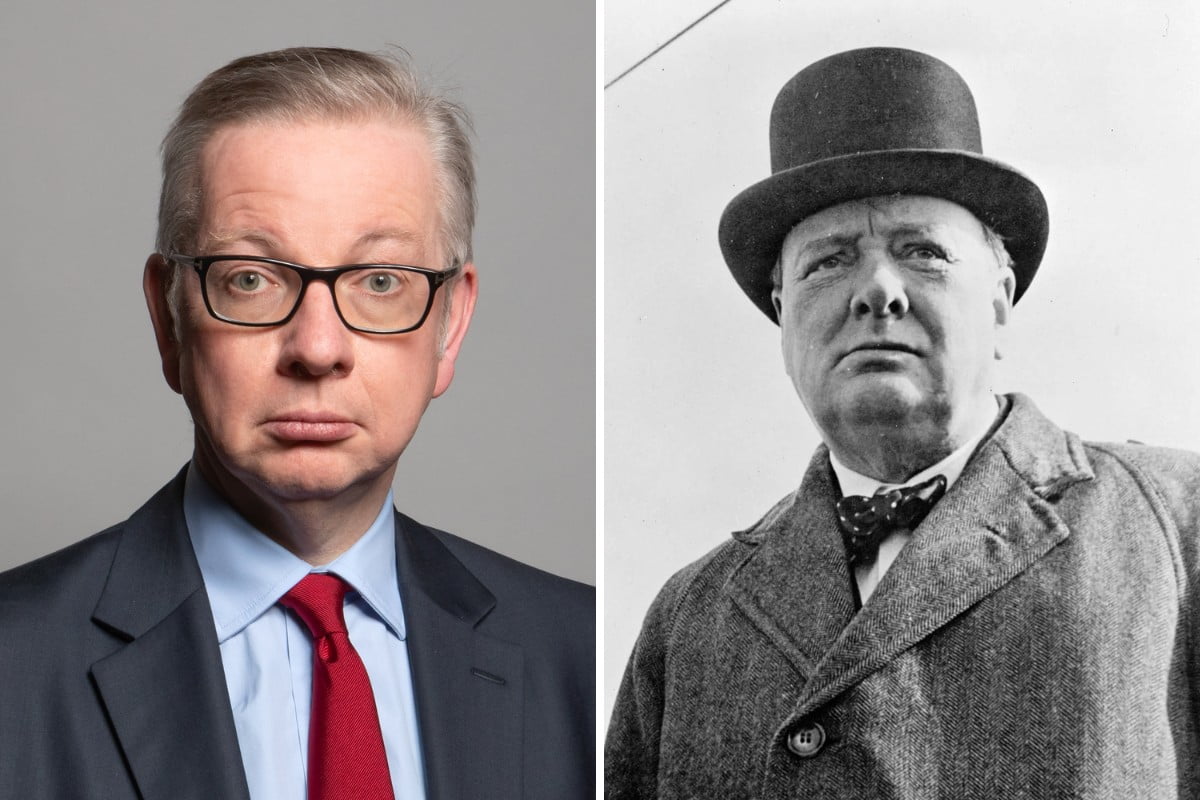Today, Tory minister Michael Gove accused the Revolutionary Communist Party of being antisemitic live on the BBC. This is a blatant smear not just against our party, but everyone who opposes the genocide in Gaza, and wants to bring an end to imperialism.
As we have explained in our response to Gove’s slander, the Tories and the establishment are cynically using the issue of antisemitism as a smokescreen to obscure their role in perpetuating Israel’s ongoing slaughter in Gaza.
They never stop lying. Tory minister @michaelgove has just accused the Revolutionary Communist Party (@revcommunists) of antisemitism live on air.
No one believes you or the rest of the war criminals in cabinet. @BBCNews I demand the right to reply to this disgusting smear. pic.twitter.com/AVOjnEo28g
— Fiona Lali (@rubanga_a) May 21, 2024
In reality, it is their support of Netanyahu’s war that is fuelling division, and making the world less safe for Jewish people.
These accusations are particularly sickening coming from the Tory Party, who themselves have a long and shocking history of antisemitism.
Our banner is clean. Communists have a proud history of fighting all forms of oppression and prejudice. It is the Tories and the capitalist system that foment hatred. That is the charge that we present to Gove and his ilk.
To equip RCP members and readers of The Communist with the facts needed to combat these lies, we are republishing an extract from an article by Alan Woods.
This article was originally written in 2019, when the establishment used similar allegations to attack left-wing Labour leader Jeremy Corbyn, and the radical movement that stood behind him.
Both then and now, the establishment is prepared to stoop to the lowest of lows to defend their interests. But the communists won’t back down. We are prepared to fight their odious lies, and we will continue our struggle to bring down their whole stinking system.
We invite you to join us in this fight.
Antisemitism has existed in the Conservative Party ever since its foundation.
It is quite true that Benjamin Disraeli became Britain’s first (and last) Jewish prime minister, but he suffered prejudice from his Conservative colleagues throughout his political career.
He himself commented on the “great anomaly” of being the Conservative chief given the “prejudices” held from within the party against his “origin”. He was described by one Conservative as “that hellish Jew”, but others merely described him as “the Jew”.
According to R. Philpot, “Disraeli’s position [on Jewish emancipation] was deeply unpopular in his own party”. The same writer says that: “The underlying current of antisemitism which coursed through sections of the Conservative party until well into the 20th century found an outlet in the persona of its long-serving leader.” (The Times of Israel, 22/02/18)
The British Brothers’ League (BBL) was founded in 1901 by a group of anti-immigration and antisemitic Conservative MPs. These were the lineal ancestors of the present-day Tory Brexiteers. A leading member of this group, William Evans-Gordon, was elected to parliament in 1900 on an “anti-alien” platform. By “aliens”, they usually meant Jews.
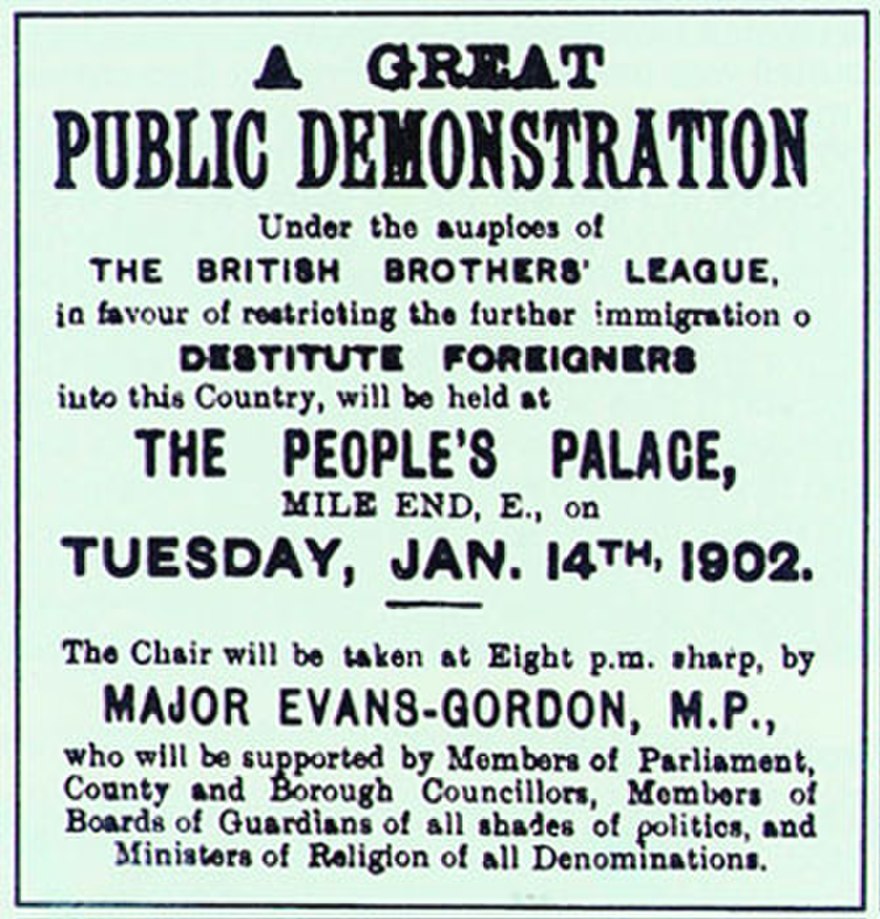
Evans-Gordon began campaigning for changes to the government’s immigration policies as soon as he was elected to office. The BBL stirred up racism against Jewish immigrants who had fled to Britain to find refuge from anti-Jewish pogroms in Russia and elsewhere. As a parliamentary group, they pressed for restrictive immigration controls (AKA: “get control of our borders”, “get our country back”).
In 1902, under the pressure of this group, a Royal Commission was set up. It served as a respectable parliamentary front directed against Jewish migrants, while outside parliament in November 1903, using the services of Harry F. Smith, a Conservative Party agent, they organised a big anti-immigrant demonstration.
In 1903, Evans-Gordon wrote a book called The Alien Immigrant based on the reports he had made to the Royal Commission, in which he deals with what he calls “the Jewish question”.
He stated that “the settlement of large aggregations of Hebrews in a Christian land has never been successful”, and that the “Hebrew colony… unlike any other alien colony in [Great Britain], forms a solid and permanently distinct block — a race apart, as it were, in an enduring island of extraneous thought and custom”, to the extent that “east of Aldgate, one walks into a foreign town”.
This vicious campaign led directly to the passing of the Aliens Act of 1905, which proposed a restrictive policy on immigration to Britain.
The antisemitic strain in British conservatism was later maintained by prominent Conservative politicians such as William Joynson-Hicks, an active member of the so-called ‘Die-hard group’ in the 1920s, which was fanatically anti-Bolshevik and overtly antisemitic. He described the Jewish immigrants to Palestine as “the sweepings of the ghettos of Central Europe”.
Stanley Baldwin, who led the Conservative Party in the 1920s and 1930s had strong ties to Joynson-Hicks, whom The Jewish Chronicle described as “the most avowed and determined anti-Semite in the House”. When Baldwin became prime minister in 1923, he promoted Joynson-Hicks to the Cabinet as Financial Secretary to the Treasury.
The Zinoviev letter
In the notorious 1924 general election, when the Conservative establishment organised a dirty campaign against the Labour Party (just like the one they carried out against Jeremy Corbyn), they made use of a forged letter, allegedly written by the Russian Bolshevik Zinoviev, in order to discredit Labour and drive it from office. The Zinoviev letter scandal was heavily tinged with antisemitic overtones.
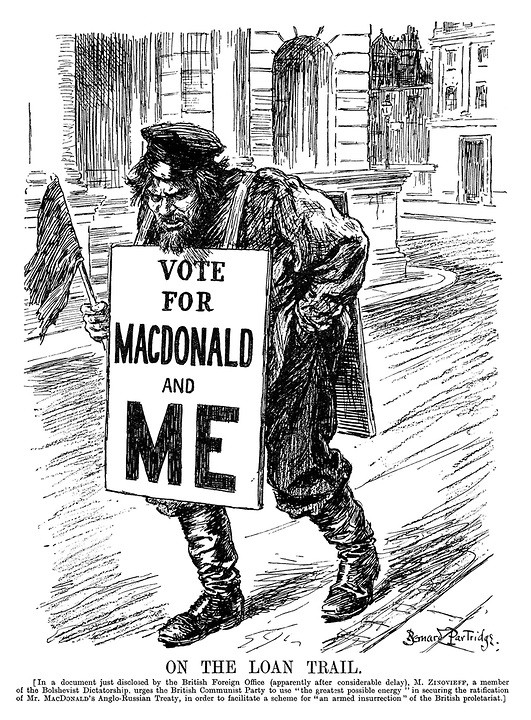
Baldwin and other Conservatives deliberately linked the alleged threat of Bolshevik revolution with the presence of aliens in Britain as one of the key themes in their election propaganda. The term ‘aliens’ was used as a codeword for “Jews”. Anti-alienism, anti-Zionism and anti-Bolshevism were always linked together, so that they became indistinguishable in the popular imagination.
Racists and xenophobes like Joynson-Hicks had been spreading their antisemitic poison openly in the Conservative Party for decades. But this blatant racism was not something confined to the margins of the Conservative Party. It was deliberately fostered and encouraged by the establishment.
Xenophobia featured in many of Baldwin’s speeches. Take for example the party-political broadcast which he delivered on 16 October. He said:
“We cannot afford the luxury of academic socialists or revolutionary agitation… I think it’s high time somebody said to Russia ‘Hands off England’… I want to examine the laws and regulations as to entry of aliens into this country, for in these days no alien should be substituted for one of our own people when we have not enough work at home to go around.”
The Zinoviev letter smear campaign worked like a charm. In November 1924, the minority Labour government fell.
After the Conservatives won the election, Baldwin made the racist Joynson-Hicks Home Secretary, a post he occupied until 1929. He naturally used position to tighten laws on immigration. Here is what he had to say on the subject of people requesting British citizenship:
“The chief test… is whether the applicant has, so far as can be judged, become an Englishman at heart and has completely identified himself with English interests.
“I will give you an example. If two brothers came to this country and one of them settles in a district where only aliens live, continues to speak his native language, marries a woman from his own country, sends his child to a school where only foreign children are kept, keeps his account in a foreign bank, employs only foreign labour, while the other marries and Englishwoman, sends his children to an English school, speaks English, employs British labour, keeps his accounts in a British bank, it is the second brother and not the first who will stand to obtain naturalisation.”
Joynson-Hicks, like many other Conservative leaders (including Winston Churchill) was known to be sympathetic to the fascist regime in Italy. He became known as ‘Mussolini Minor’. In the 1930s, the Conservative Home Secretary refused to meet a delegation from organisations combating antisemitism.
Winston Churchill’s antisemitism
Winston Churchill was another admirer of Mussolini. He was also a declared antisemite. Churchill believed that communism was part of an international Jewish conspiracy, aimed at world domination, dedicated to “the overthrow of civilisation and the reconstruction of society” (Quoted by Michael Cohen, Churchill and the Jews).
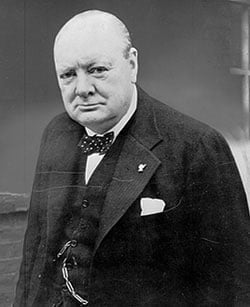
In an article entitled ‘Zionism versus Bolshevism: A Struggle for the Soul of the Jewish People,’ Churchill wrote:
“In violent opposition to all this sphere of Jewish effort rise the schemes of the International Jews. The adherents of this sinister confederacy are mostly men reared up among the unhappy populations of countries where Jews are persecuted on account of their race. Most, if not all, of them have forsaken the faith of their forefathers, and divorced from their minds all spiritual hopes of the next world.
“This movement among the Jews is not new. From the days of Spartacus-Weishaupt to those of Karl Marx, and down to Trotsky (Russia), Bela Kun (Hungary), Rosa Luxembourg (Germany), and Emma Goldman (United States), this worldwide conspiracy for the overthrow of civilisation and for the reconstitution of society on the basis of arrested development, of envious malevolence, and impossible equality, has been steadily growing.
“It played, as a modern writer, Mrs. Webster, has so ably shown, a definitely recognisable part in the tragedy of the French Revolution. It has been the mainspring of every subversive movement during the Nineteenth Century; and now at last this band of extraordinary personalities from the underworld of the great cities of Europe and America have gripped the Russian people by the hair of their heads and have become practically the undisputed masters of that enormous empire.” (Rt. Hon. Winston S. Churchill: ‘Zionism versus Bolshevism: A Struggle for the Soul of the Jewish People’, Illustrated Sunday Herald, February 8, 1920, p 5.)
Churchill had told Lloyd George that the Jews were “the main instigators of the ruin of the Empire”, that they had played a “leading part in Bolshevik atrocities” that the presence of Jews in radical groups was due to “inherent inclinations rooted in Jewish character and religion”, and that a government should not have “too many Jews in it”. (See G. Lebzeiter, Political anti-Semitism in England, 1918-1939)
He warned Britain to beware the “international Soviet of the Russian and Polish Jew” and that he had found evidence of a “very powerful” Jewish lobby in the country. (Michael J. Cohen, Churchill and the Jews). His wife, Clementine, shared his antisemitic opinions. She wrote to him in 1931 that she could understand “American Anti-Semitic prejudice” (ibid).
In June 1937, the American magazine Liberty asked Churchill to write an article on the “Jewish problem.” Churchill entrusted the task to his ghost-writer Adam Marshall Diston, to whom he gave some suggestions. Churchill made some handwritten marks on the manuscript.
The article expressed the idea that Jews themselves were responsible for antisemitism, by keeping themselves separate from the rest of society. It also contained objectionable stereotypes of Jews (Shylock’s pound of flesh, Jewish usurers, “bloodsuckers”, and so on).
Here is an extract:
“The Jew in England is a representative of his race. Every Jewish money-lender recalls Shylock and the idea of the Jews as usurers. And you cannot reasonably expect a struggling clerk or shopkeeper, paying forty or fifty per cent interest on borrowed money to a ‘Hebrew bloodsucker’ to reflect that, throughout long centuries, almost every other way of life was closed to the Jews; or that there are native English moneylenders who insist, just as implacably, upon their ‘pound of flesh’” (quoted in Michael J. Cohen, Britain’s moment in Palestine, 1917 – 1948).
In the end, the article was not published, despite Churchill’s efforts to sell it. Apparently, he was quite happy to publish it under his own name and therefore assume full responsibility for the views contained in it.
However, in 1940, Churchill refused permission to have the article published. By this time, Britain was at war with Nazi Germany and Mr Churchill was sitting in number 10 Downing Street. His office stated that it would be “inadvisable to publish the article… at the present time.” (my emphasis, AW)
For obvious reasons, Churchill kept quiet about his antisemitism in later years, just as he never reminded anybody about his earlier enthusiasm for Mussolini’s fascism. To this day, these facts have been consigned to oblivion and most people have never heard of them. But these are facts, and facts are stubborn things.
After the War
Antisemitism raised its poisonous head once more during the election of 1945, when it was used by Conservative candidates against the Labour Party. In August 1945, The Jewish Chronicle reported that “antisemitism on the part of [Conservative] party supporters had led many local political associations not to select Jewish candidates”.
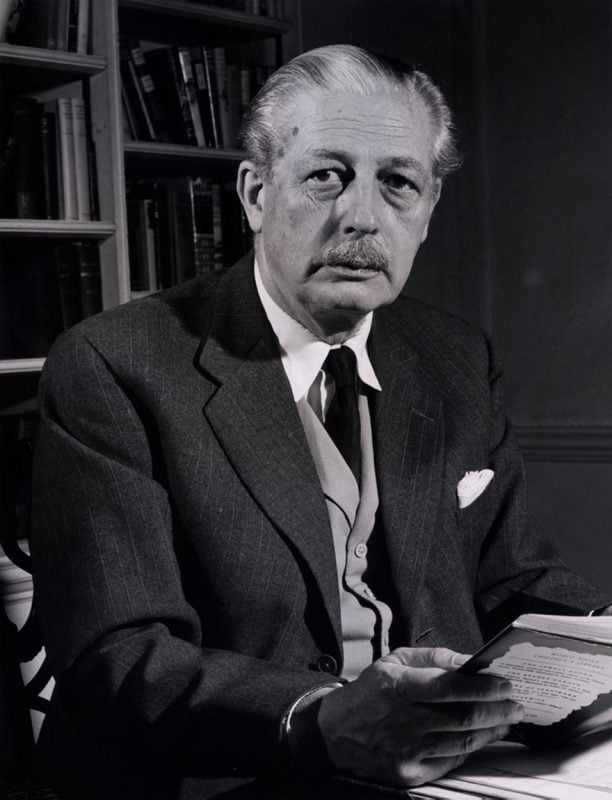
During the election campaign, Conservative candidate Wavell Wakefield advocated the repatriation of Jewish refugees as the solution to London’s housing crisis. The Daily Herald accused the Conservatives of making antisemitic remarks about Labour’s Harold Laski. In 1945, the local Hampstead Conservative group began agitation against Jewish immigration.
In October 1945, an antisemitic petition was drawn up by residents of Hampstead, with the help of the Conservative MP for Orpington, Waldron Smithers, requesting “that aliens of Hampstead should be repatriated to assure men and women of the Forces should have accommodation upon their return” from World War II.
The petition was signed by Sydney A. Boyd, the antisemitic Conservative mayor of Hampstead, and was backed by the Conservative members of the council. Charles Challen, Hampstead’s Conservative MP, promised to give the petition his “unstinting support.”
Many similar examples can be found. In the 1950s, Tory Prime Minister Harold Macmillan was known to have antisemitic views, a fact that is reflected in his diaries. And so the story goes on and on.
Margaret Thatcher included several Jewish ministers in her cabinet. But all of them had experienced antisemitism from their colleagues. After the resignation of Leon Brittan from the cabinet, John Stokes commented that the “replacement should at least be a ‘proper red-faced, red-blooded Englishman”‘, a remark that was interpreted as antisemitic both by Brittan’s non-Jewish wife and the Jewish Board of deputies.
Edwina Currie was described by her colleagues as a “pushy Jewess”, despite being a member of the Church of England. In October 2004, a Conservative frontbencher was quoted by the BBC’s James Naughtie as saying: “The trouble is that the [Conservative] party is being run by Michael Howard, Maurice Saatchi, and Oliver Letwin [all of them Jewish] – and none of them really knows what it is to be English”.
This is the authentic voice of the present Tory leadership – a right-wing, reactionary gang of xenophobes, who are using demagogic appeals to “get Brexit done” to whip up the most disgusting, chauvinist, and racist sentiments among backward layers of the population.

